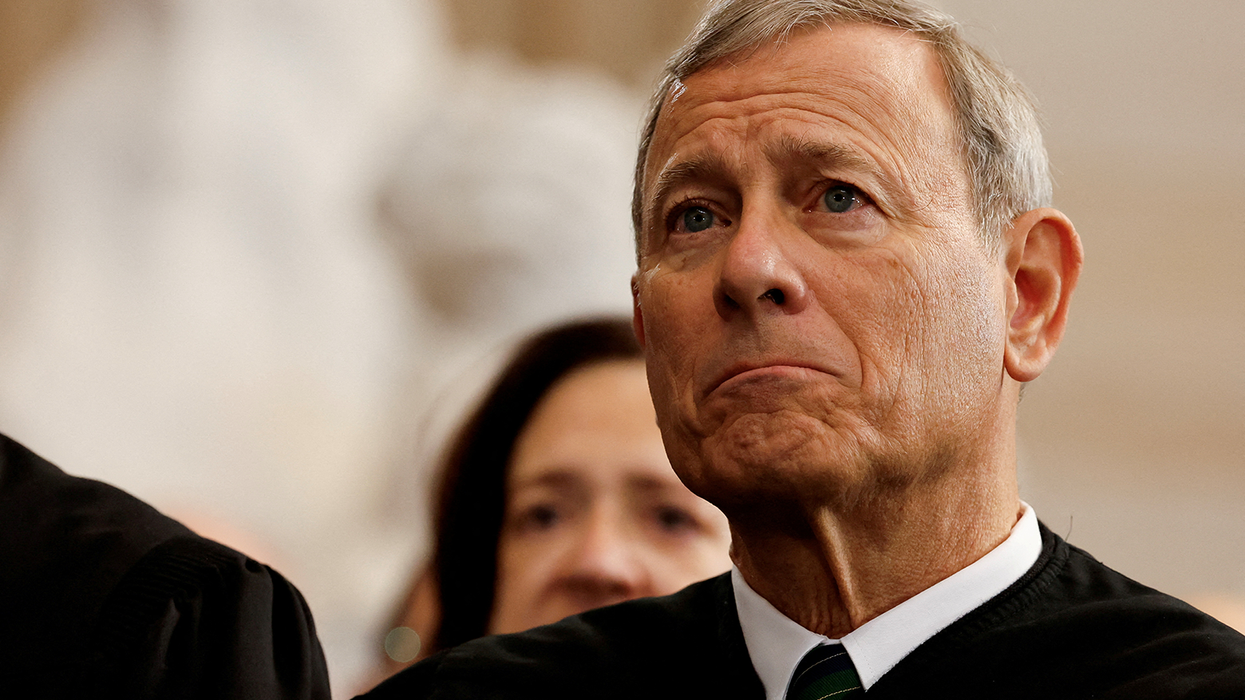On Friday morning, June 27, the U.S. Supreme Court issued a ruling that is relevant to birthright citizenship. The High Court, the Associated Press (AP) reported, "ruled that individual judges lack the authority to grant nationwide injunctions" but was "unclear" on "the fate of" President Donald Trump's birthright citizenship order.
After returning to the White House on January 20, Trump issued an executive order ending birthright citizenship — which, according to the American Civil Liberties Union (ACLU) and many legal scholars, he lacked the authority to do because birthright citizenship is protected by the U.S. Constitution's 14th Amendment.
CNN was quick to report on the High Court's ruling, bringing on former Southern District of New York federal prosecutor Elie Honig for legal analysis.
READ MORE: 'Cruelty and criminality': Experts say Trump 'incapable of grasping how despised he is'
Honig told hosts Wolf Blitzer and Pamela Brown, "This question remains in flux. People who were born to parents who are not citizens could have different status in different districts at this moment."
Honig, noting Justice Amy Coney Barrett's comments in the majority opinion, described the ruling as an "expansion of presidential powers" and a "reduction in the powers of courts" as well as a "big win for the Trump Administration" and "the office of the president."
Honig told Blitzer and Brown, "Whoever comes next is going to get the benefit of this ruling, too, and it's going to make it much harder — not impossible, but much harder — for a single district court judge in Maryland or Wyoming or where have you to say, 'I'm blocking the president's action nationwide.' It's going to be much harder to do that now."
Meanwhile, on MSNBC, one of their legal analysts, Lisa Rubin, said of the High Court's ruling, "Your rights depend on what state you live in…. This decision coexists in a country where lawyers are under attack."
READ MORE: 'He. Is. Lying.' Republican blasted for spinning Medicaid cuts as 'transitioning
Rubin added that the High Court is creating a "patchwork effect" with civil liberties.
A headline in La Opinión, the largest Spanish-language publication on the West Coast, read, "Corte Suprema Permite a Trump Restringir la Ciudadanía Por Nacimiento, Pero con Limitantes" — which translates to "The Supreme Court Allows Trump to Restrict Birthright Citizenship, But Within Limits."
The ruling is also receiving a lot of reactions on X, formerly Twitter.
X user Michael Clayton tweeted, "They simply said that the Federal courts may have exceed their authority. 14th Amendment challenges have to go to the Supreme Court or back to Congress…. You are born in the US you are a citizen regardless of where the parents are from."
Referencing the Kilmar Ábrego García case in a separate tweet, Clayton wrote, "Same with the Garcia case. The reason @realDonaldTrump loves SCOTUS is cause they like absolute power."
Far-right radio host Mike Gallagher posted, "BREAKING NOW: Supreme Court rules 6-3 that curbs nationwide injunctions The High Court has ruled to limit birthright citizenship & rein in the power of lower courts to block presidential executive orders — a double win for constitutional order & the Trump agenda."
Legal reporter Chris Geidner wrote, "BREAKING: Supreme Court, 6-3, limits nationwide injunctions in cases challenging Trump's executive order to end birthright citizenship, staying injunctions where 'broader than necessary to provide complete relief' to those challenging the orders. Lower courts are to decide how that is done."
Geidner also tweeted, "The Supreme Court also allows the Trump administration to begin developing guidance for implementing the executive order. Barrett has the opinion for the court. (Clarence) Thomas, (Samuel) Alito, and (Brett) Kavanaugh write concurrences. Sotomayor writes the main dissent for her, Kagan, and Jackson. Jackson also dissents."
READ MORE: 'The criminals are in charge': George Conway torches Trump DOJ
Watch the full CNN video below or at this link.


